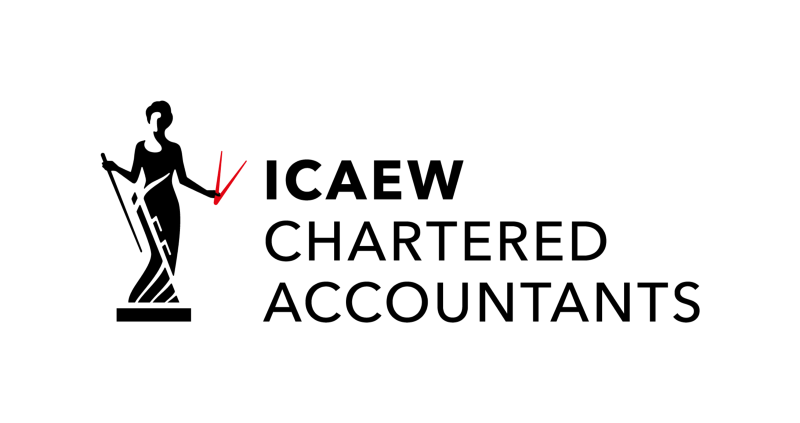In the “pre-technology” days, accountants were largely regarded as the bookkeepers for businesses; a reactive role involving reams of paper, pencils, and days consumed by calculations. Columns of numbers were added up and moved from page to page, while financial statements were compiled manually.
Fast forward to 2018, and number crunching is no longer the sole responsibility for accountants. Businesses all over the world are benefiting from using their accountants as trusted business advisors. According to research from the ICAEW, businesses of all sizes overwhelmingly report an accountant as their most trusted business adviser.
Similarly, accountants today are embracing opportunities to diversify their practices and progress towards value-added services and a wide range of business skills, including technology, marketing and leadership, in order to help achieve their clients’ goals beyond the numbers.
Technology
Technology, the internet and tax software are changing the way accountants work and have brought new efficiencies to accountancy practices. For example, cloud software allows accountants to collaborate and work with their clients in real time. It may even be argued that the enabling of collaborative working has resulted in a client-accountant partnership, where both parties are equally involved and dedicated to the growth and success of the business.
Automation, Big Data, and AI are all starting to impact the way various jobs are performed. As other sectors begin to adapt to changing work patterns and needs, so must accountants and accounting. As these changes come into force, expectations of clients are evolving.
In an increasingly competitive market, what must accountants be doing to win over new clients?
Be clued in on policy
It’s easy to jump straight into conversations with potential clients and start combing through their bsuiness plans?—?but while becoming a trusted advisor is an exciting opportunity, it comes with great responsibility. It’s invaluable to have an understanding of current government policies in the U.K and Ireland. The U.K government website is a great resource for gaining knowledge on topics, including tax relief on charity donations, and how the government funds and supports innovation in science, technology and engineering to help the UK’s high-tech industries grow.
Know what funding is available
The access to numerous forms of funding in the U.K and Ireland presents a wealth of opportunity for young businesses. From crowdfunding schemes to equity financing, the choice is endless?—?and likely to keep on growing. The key to choosing the most suitable option for your client is knowing exactly what each scheme offers, the processes involved and what investors will expect in return. The more you know about the current opportunities available, the more likely it is the accountant-client relationship will develop into a business partnership?—?with trust feeding in from both sides.
SEIS
The Seed Enterprise Investment Scheme (SEIS) offers great tax efficient benefits to investors in return for investment in small and early stage startups in the UK. For example, if an investor invests £100,000 (the maximum they would be able to under the SEIS scheme), they can write off £50,000 from their tax bill. If the business goes on to fail, they can write off another £25,000 in that tax year, meaning their risk is £25,000. If the business is a success, the investor must hold their shares for three years, after which they can sell them. If they sell them, they are not required to pay any capital gains tax on them. Similarly, if the investor chooses to transfer the shares to their children, there is no inheritance tax to be paid.
The Enterprise Investment Scheme (EIS) helps smaller high-risk companies raise finance, by offering tax relief to investors who purchase shares in those companies. Under EIS, you can raise up to £5 million each year, and a maximum of £12 million in your company’s lifetime. You can receive investment under EIS as long as it’s within 7 years of your company’s first commercial sale.
Local Enterprise Partnerships (LEP) Growth Hubs
These are regional hubs that the government has set up for businesses to learn about what grant programmes are available to them. LEP growth hubs are increasingly popular outside of London, as it’s often assumed that London businesses are less likely to seek funding. While grants are not available at the London hub, other support is available for free, including growth coaching hours.
Do your homework on what other countries can offer you
If your business has always been based in London, it’s worth considering opening a base in another country. This will make it easy to explore the funding possibilities which may not be available to you at your current base. You don’t always have to travel far to find new alternatives. The key to unlocking the next stage of your funding could be just a stone’s throw away on the Emerald Isle. The Competitive Start Fund in Ireland offers investment of £50,000 for 10% of the company. This can be followed by another £250,000, but they will never ask for more than 10%.
What are some of the finance sources available?
Equity financing refers to the sale of an ownership interest, to raise capital for business purposes. It can range in scale?—?from a few thousand pounds raised by a business owner’s friends and family, to millions provided by giant corporate organisations, such as Google. An important thing to remember about equity financing is that it’s different from debt financing, which refers to funds borrowed by a business.
Startup loans
The place to go when your business is two years old or younger, is a startup loans company. You can raise up to £25,000 per founder of the business. An advantage of these facilities is that the interest rate sits at around 6%, whereas if you were to go out to the market normally, it’s likely the rate would be around 12%. There are also repayment holidays?—?for example, you don’t have to pay anything back for the first six months if you’re still trying to get your business up and running. Take advantage of the schemes you are eligible for as a young business?—?it’s what the government set them up for!
Asset finance
Even if you’ve already purchased an asset for your business and didn’t use any finance, you can look to refinance it. This only refers to physical assets such as laptops, vans etc., not software.
Enterprise Finance Guarantee (EFG) scheme
This scheme has been around for about twenty years, and shows no signs of disappearing any time soon. A great advantage of this scheme is that unlike traditional bank loans, it does not consider your home as an asset. If you have no other assets, it doesn’t matter?—?the government becomes the guarantor of your loan.
R&D Tax Credits
Research and development (R&D) tax credits are a government tax relief that rewards UK companies for investing in innovation. These include companies that spend money developing new products and services, or enhancing those which already exist. R&D tax credits are a good alternative to innovation grants for development and research funding. In order to receive R&D relief, you must be able to explain how your project looked to advance in science or technology and couldn’t be easily worked out by a professional in the field.
Swoop was set up to help businesses successfully answer the question, “Where do I get access to funding?” Based in the UK and Ireland, Swoop can assess your needs quickly and match you to the right funding solution. All that’s required from you is to fill in a simple form?—?Swoop will then assess and match you to providers instantly. In addition to this, as your information changes alongside the market, Swoop will update you in real time with funding solutions which best suit your business needs.






 yet? Register here!
yet? Register here!